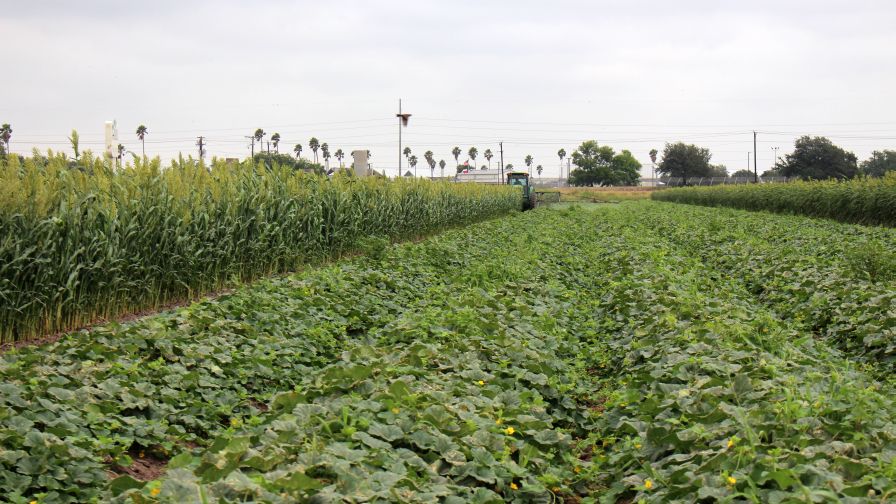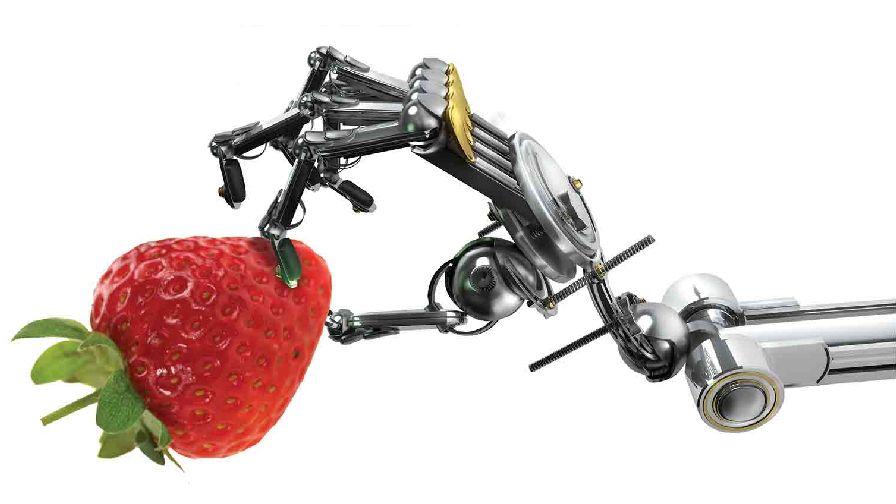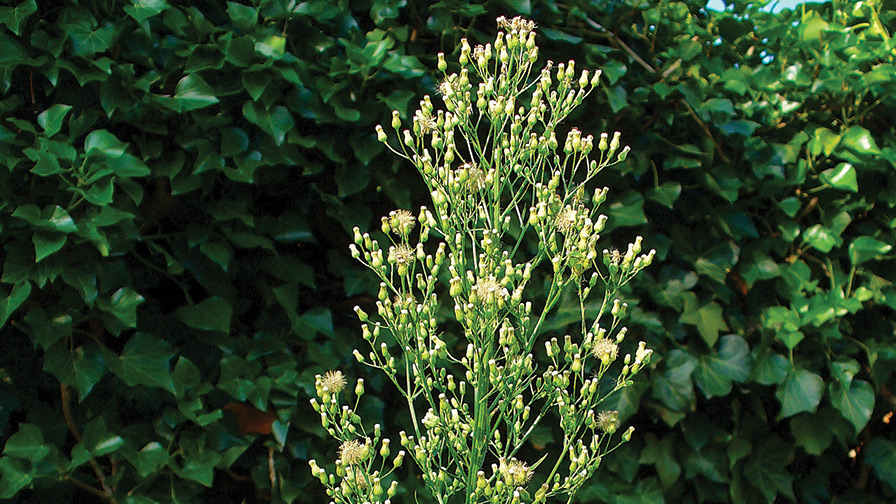Florida Gets $4.4 Million Of USDA Funding Block
Florida Commissioner of Agriculture Adam Putnam announced the award of more than $4.4 million in grants as part of USDA’s Specialty Crop Block Grant Program. These grants will fund 23 projects in Florida to enhance the competitiveness of the state’s specialty crops.
Initiatives supported by Specialty Crop Block Grants will:
- Increase child and adult nutrition knowledge and consumption of specialty crops;
- Improve efficiency and reduce costs of distribution systems;
- Assist entities in the specialty crop distribution chain in developing “Good Agricultural Practices,” “Good Handling Practices,” and “Good Manufacturing Practices;”
- Support specialty crop research, including efforts that focus on conservation and environmental outcomes;
- Enhance food safety;
- Develop new and improved seed varieties and specialty crops;
- Manage pest and disease; and
- Develop organic and sustainable production practices.
The 23 projects selected for grants will help strengthen the market for Florida specialty crops, including fruits, vegetables, horticulture and nursery crops, and value-added specialty crop products.
The projects were selected by FDACS, in coordination with members of an external review committee representative of Florida’s specialty crop industry. Specialty Crop Block Grant recipients include:
Citrus Research and Development Foundation (CRDF)
- Develop methods of planting new citrus groves in Florida that will grow to productive age and provide sustainable yields even in the presence of HLB. CRDF will determine the role of nutritional and insecticidal treatments in the mitigation of HLB, develop methods for use of soil-applied insecticides to protect young trees, bring young trees infected with HLB into production using intensive horticultural management strategies, and test an advanced production system for efficient, sustainable citrus groves.
Florida Agriculture in the Classroom (FAITC)
- Through small grants to teachers and schools, FAITC will provide teachers and schools with the resources required to build and expand school gardens, giving students the opportunity to learn firsthand about gardening and nutrition.
University of Florida
- Partner with the Colorado Department of Agriculture to use a systems level approach to understand and develop control mechanisms that will reduce the contamination and subsequent growth of foodborne bacterial pathogens on cantaloupes.
- Enhance the competitiveness of small farm specialty crop growers through quality educational programming and capacity-building by supporting the Small Farms and Alternative Enterprises Conference, continuing Small Farms Food Safety Training, and strengthening cross-cultural networks inclusive of underserved specialty crop farmers, students, and Extension faculty.
- Improve the safety of tomatoes by testing the impact of treatment with iron- and copper- containing foliar sprays on susceptibility of tomatoes to post-harvest contamination with Salmonella, testing the susceptibility of existing tomato genotypes with delayed ripening or different pigment production to Salmonella, and by developing a multi-faceted web-supported extension outreach program for large producers and urban gardeners.
- Minimize the impact of laurel wilt on avocado production by developing a remote sensing technique for rapid diagnosis through helicopter and ground surveys of the commercial avocado production area, experimental validation of the technique, monitoring of the development and spread of laurel wilt in the commercial avocado production area, and assessment of the economics of remote detection.
- Develop and optimize a production process that can produce a concentrated, calorie-free, sugar-free nutraceutical extract from blueberries, thereby creating a use and a market for late season berries and increasing grower profits.
- Develop and improve integrated pest management strategies for two major blueberry pests in Florida. Researchers will develop a model to predict thrips population development based on temperature, calculate an Economic Injury Level (EIL) for management decisions in southern highbush blueberries, compare two types of blueberry gall midge monitoring traps to determine midge host-finding cues, survey blueberry farms throughout Florida for spotted wing drosophila, and conduct experiments to compare trap types for monitoring and selective and/or reduced-risk insecticides for control of spotted wing drosophila.
- Optimize marketing, sensory and genetic data to produce a pipeline of high-flavor varieties that will position the Florida strawberry industry with a dominant quality advantage in the marketplace by conducting market research using the UF2 breed, running consumer panels and analytical chemistry to further quantify the impact of flavor-enhancing volatile compounds, and investigating the genetic basis for the production of consumer-favorable volatile compounds.
- Develop an integrated program that minimizes citrus black spot (CBS) infection and spread in the field, controls or eliminates G. citricarpa spores/hyphae in infected fruit after harvest, and trains industry statewide to identify and manage the disease. Researchers will evaluate new fungicides, inducers of systemic acquired resistance (SAR), new vehicles of application (i.e., including WashGard, Polymer Delivery System, etc.), and new management options that may substantially improve CBS management.
- Study and demonstrate the feasibility of converting traditional seepage irrigation to efficient and sustainable drip irrigation system focusing on optimum water and fertilizer application and by encouraging the adoption of high efficiency drip irrigation and fertigation practices for cabbage and cucurbits
Florida Certified Organic Growers and Consumers
- Improve food safety among small farms by establishing a cost effective and scale appropriate food safety certification and cost share reimbursement program for small-scale specialty crop producers and processors.
- Boost sales of Florida-grown specialty crops to Florida consumers, providing higher-margin direct markets for Florida’s small farmers, while increasing access to and consumption of healthy, locally produced specialty crops for low-income Florida residents by issuing double voucher coupons to incentivize the socially disadvantaged to utilize their federal nutrition benefits to purchase specialty crops.
Florida Nursery, Growers, and Landscape Association
- Produce and host the 3rd and 4th annual Floriculture Field Days and Performance Trials at Epcot Center, which will provide the floriculture industry with a research test site and educational venue for new and improved seed and cutting varieties.
Florida Get More Than $4 Million For Specialty Ag Projects
Florida Specialty Crop Foundation
- Improve nutrition knowledge and consumption of specialty crops by increasing the number of producers, schools, and distributors participating in Farm to School (F2S) initiatives through the development and use of a Farm to School planning tool, research on perceptions of foodservice directors and foodservice distributors, and wide dissemination of research results.
- Mitigate the losses caused by late blight, by evaluating available late blight resistant tomato lines in Southwest Florida and investigating the mutational potential of Phytophthora infestans for resistance to three labeled fungicides.
- Promote Florida specialty crop consumption and encourage child and adult nutrition awareness through a series of ten “Kids in the Kitchen” feature editorials. Each will contain at least three recipes and a sidebar with nutritional information on an individual Florida specialty crop.
Florida Tomato Committee
- Increase the sales and marketability of fresh Florida field-grown tomatoes by educating consumers on the versatility and proper handling of Florida tomatoes and educating consumers on the nutrition and health benefits of fresh Florida tomatoes.
The Lincoln Center Foundation
- *Improve the health and nutrition of youth ages 5-14 by engaging 60-70 at-risk and low income youth in planting fruit and vegetable gardens and conducting quarterly workshops on the health benefits of each fruit and vegetable planted.
Red Hills Small Farm Alliance
- Lower costs and address risks faced by farmers who sell direct-to-consumer by expanding an innovative web-based distribution system into low-income neighborhoods, and increasing awareness of the availability of locally grown specialty crops through targeted marketing efforts.
Tropical Fruit Growers of South Florida
- Assist small and mid-sized fruit and vegetable farmers in Miami-Dade County in complying with the Food Safety Modernization Act by producing accepted good agricultural practices and good harvest practices and by organizing and presenting a series of workshops, websites, and instructional videos on the topic.
Urban Oasis Project
- Develop and operate a mobile farmers’ market and provide double voucher coupons to incentivize the socially disadvantaged to utilize their federal nutrition benefits to purchase specialty crops.
USDA-ARS
- Mitigate the negative effects of infection by HLB on flavor of oranges and orange juice. Researchers will determine whether various nutritional sprays can limit the disease symptoms on the tree and improve the flavor of oranges from infected trees.
Visit www.ams.usda.gov/scbgp for more information about the Specialty Crop Block Grant Program.









